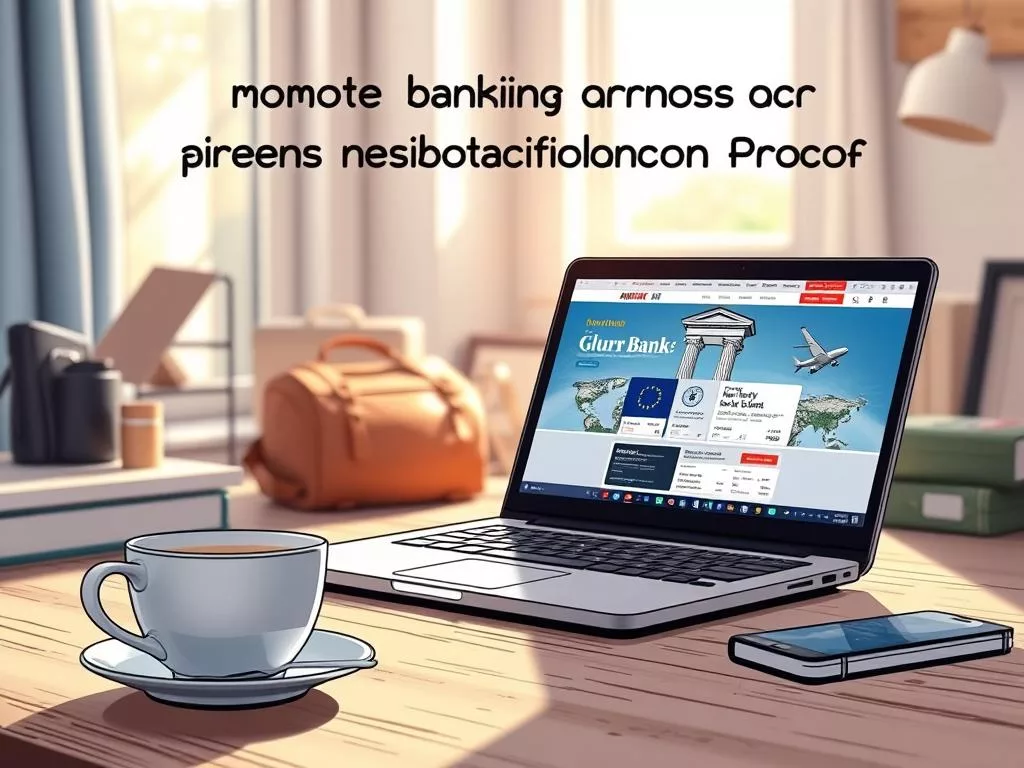Opening a US bank account without residency proof can seem tough. But, the world of non-resident banking is changing. Big banks like Chase and Bank of America now welcome non-residents. This makes it easier to manage money from abroad.
Having a US bank account helps with regular transactions. It also saves you from high fees when you send money internationally.
To open a US bank account without being a resident, you need some documents. You’ll need an Individual Tax Identification Number (ITIN), a valid passport, and sometimes proof of address. Different banks and branches have different rules.
Some banks make you visit in person to open an account. But, others offer easier ways to start.
To find more ways to open a bank account without residency, look at different banks. Not all banks need a Social Security Number (SSN) or ITIN. This means foreigners can get the banking services they need.
It’s also important to know about the initial deposit and account fees. Most banks ask for a deposit of $25 to $100 to start.
Understanding the Requirements for Non-Residents
Opening a bank account in the United States as a non-resident has its own set of rules. You’ll need a valid photo ID, like a passport, and proof of where you live. An ITIN is also key for tax purposes and is accepted by many banks instead of a Social Security Number.

Many banks, including Chase and Bank of America, accept an ITIN for new accounts. They might ask for two IDs from non-U.S. citizens. This can include a passport as your main ID and something else as your secondary ID.
It’s important for non-residents to check with each bank about what they need. The rules can change based on state laws or the bank’s policies. Some banks might not ask for a deposit, while others could want $25 to $100.
To make things clearer, here’s a table showing what major banks usually ask for:
| Bank Name | SSN Requirement | ITIN Acceptance | Minimum Deposit |
|---|---|---|---|
| Chase Bank | No | Yes | $25 |
| Bank of America | No | Yes | $100 |
| Wells Fargo | No | Yes | $25 |
| HSBC | No | Yes | $100 |
| Local Credit Unions | No | Yes | Varies |
Having a bank account can make managing money easier for non-residents. It helps with payments, taxes, and keeps your money safe. It also helps you get the financial documents you need, like for tax purposes.
For more help on how to open a bank account as a non-resident, check out this guide. It explains the steps and talks about the challenges you might face.
Guide to open bank account us even without proof residency
Non-residents wanting to open a US bank account face challenges. Yet, there are ways to bank without a SSN. To open a US bank account remotely, knowing the requirements is key.
Many banks now help with international banking for non-residents. Wells Fargo is great for those without a US SSN or ITIN. Wise and HSBC also make it easy to get an account, with simple online banking for non-residents.
Here’s a simple guide to navigate the application process:
- Gather your necessary documents, like a valid passport, proof of address, and a visa or residency permit.
- If you lack an ITIN, be ready to submit an application that may take seven weeks or longer for approval.
- Consider options like Wise, which allows account setup without a US address and offers competitive features such as low fees.
- Conduct thorough research to determine initial deposit requirements as some banks may require substantial up-front balances, ranging from $100 to $1,000.
- Plan a visit to a bank branch if possible, establishing a relationship with staff versed in non-resident applications can improve the chances of approval.
Many banks may impose average monthly fees between $10 to $15 if balance requirements aren’t met. So, understanding these costs is essential for effective banking.

Online banking is getting more popular among non-residents. Platforms like Parallax offer easy ways to manage finances across borders, with good customer support and fast transactions.
Preparing your documents and choosing the right non-resident account options are key to opening a US bank account successfully.
Exploring Alternative Banking Solutions
For non-residents in the United States, new banking options have made it easier to access financial services. Fintech companies like Wise and Relay make opening accounts simple, without the need for a US address. This is great for digital nomads and freelancers who need to manage money online.
Wise is known for helping people get USD payments, even without a US address or Social Security Number. But, it doesn’t have federal insurance, which might worry some. Relay, on the other hand, offers FDIC insurance through bank partnerships. This means you get the tech benefits with the security of insured deposits.
Even with these fintech options, users should know their limits. Some services might not be insured, which could be risky. Yet, as traditional banks adapt to global clients, new options like Payoneer and Airwallex are emerging. They’re designed for easy, borderless transactions, showing how banking is changing to fit our digital lives.

